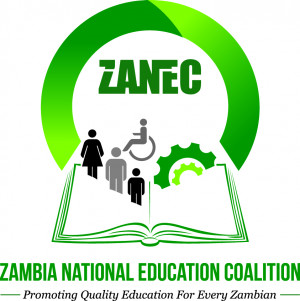. Background
In 2023, the Ministry of Education (MoE) launched its 2022–2026 Strategic Plan to strengthen education delivery in Zambia. The Ministry of Education’s strategic plan aligns with the 8th National Development Plan, targeting improved access to equitable, inclusive, and quality education that enables learners to pursue higher education. To ensure access to equitable and inclusive quality Education, the Ministry of Education’s strategic plan has the following strategic objectives
· Improve learning achievements;
· Increase access and participation in education;
· Improve education financing and management;
· Enhance management systems;
· Improve human resource capacity;
· Enhance the education regulatory framework; and
· Improve education infrastructure and equipment
A midterm monitoring survey in 2024, conducted by the Zambia National Education Coalition (ZANEC), highlighted progress as well as persistent challenges.
Some of the key findings from the monitoring activity were:
· Sensitisation of the strategic plan was uneven; nearly half of DEBS and many schools cited inadequate sensitisation.
· Few schools developed their own strategic plans; benchmarking is inconsistent.
· Early Childhood Education readiness is improving: 85% of learners are meeting developmental milestones for Grade 1 transition.
· Lower primary literacy remained weak; numeracy outcomes were stronger.
· Upper primary literacy and math proficiency are improving but unevenly.
· Secondary outcomes show moderate progress, with persistent gaps.
· Literacy crisis persists: many 10-year-olds are still unable to read/write.
· Teacher shortages and uneven deployment still persist.
· Teacher motivation weakened by lack of housing and delayed promotions.
· 60% of institutions have appropriate infrastructure, but major gaps remain in sanitation and ICT.
· New schools constructed, but rehabilitation efforts limited.
The major challenges identified during the monitoring were,
· Inadequate funding, especially for boarding and urban schools.
· Infrastructure gaps, especially at the ECE level.
· Teacher shortages and poor motivation.
· Low sensitisation of the Strategic Plan.
· Weak data use in decision-making.
· Inconsistent adherence to the Strategic Plan at local levels
2. Purpose of the Assignment
The purpose of this follow-up study is to assess the implementation progress for the year ending 2025 and to determine the extent to which recommendations from the previous monitoring exercise have been adopted, identify challenges, and provide actionable recommendations
3. Objectives of the Study
i. Assess awareness and ownership of the Strategic Plan at all levels.
ii. Evaluate progress against Strategic Plan targets in learner outcomes, access, financing, human resources, and infrastructure.
iii. Document how challenges identified in 2024 have been addressed.
iv. Capture stakeholder perspectives on implementation progress and lessons.
v. Provide recommendations for improvement based on the findings.
4. SCOPE OF WORK:
The consultant will be required to perform the following tasks:
a) Conduct a comprehensive review of the Education Sector Plan documents.
b) Design data collection tools and methodologies for field visits, interviews, and surveys.
c) Analyse, and interpret data on key performance indicators outlined in the Education Sector Plan.
d) Identify challenges and bottlenecks in the implementation process through stakeholder consultations.
e) Provide a detailed report outlining findings, conclusions, and recommendations for improvement.
5. Deliverables:
The consultant is expected to deliver the following:
a) Inception Report: Detailed work plan, methodology, and tools within three days of the consultancy.
b) Synthesise the data from the data collectors.
c) Final Report, 4-page policy brief and PowerPoint Presentation of the Findings.
6.Duration:
The consultancy is expected to be completed within 12 days.
7. QUALIFICATIONS AND EXPERIENCE:
The consultant should have:
a) Proven experience in monitoring and evaluating education sector programs.
b) Expertise in data collection, analysis, and reporting.
c) Familiarity with the Zambian education system and policies.
d) A team of qualified professionals with relevant backgrounds in education monitoring and evaluation.
e) Experience working with MoE, CSOs, and donors.
8.Proposal Submission:
All expressions of interest with a detailed budget for the research must be submitted through email to the address below by 17:00hrs on Fpriday, 10th October 2025.
The Executive Director,
Zambia National Education Coalition,
125/90A Mufufuma Road, Jesmondine
P.O. Box 30774,
Lusaka-Zambia,
Email:admin@zanec.org.zm
CC: za2002nec@gmail.com
CC: za2002nec@yahoo.com









